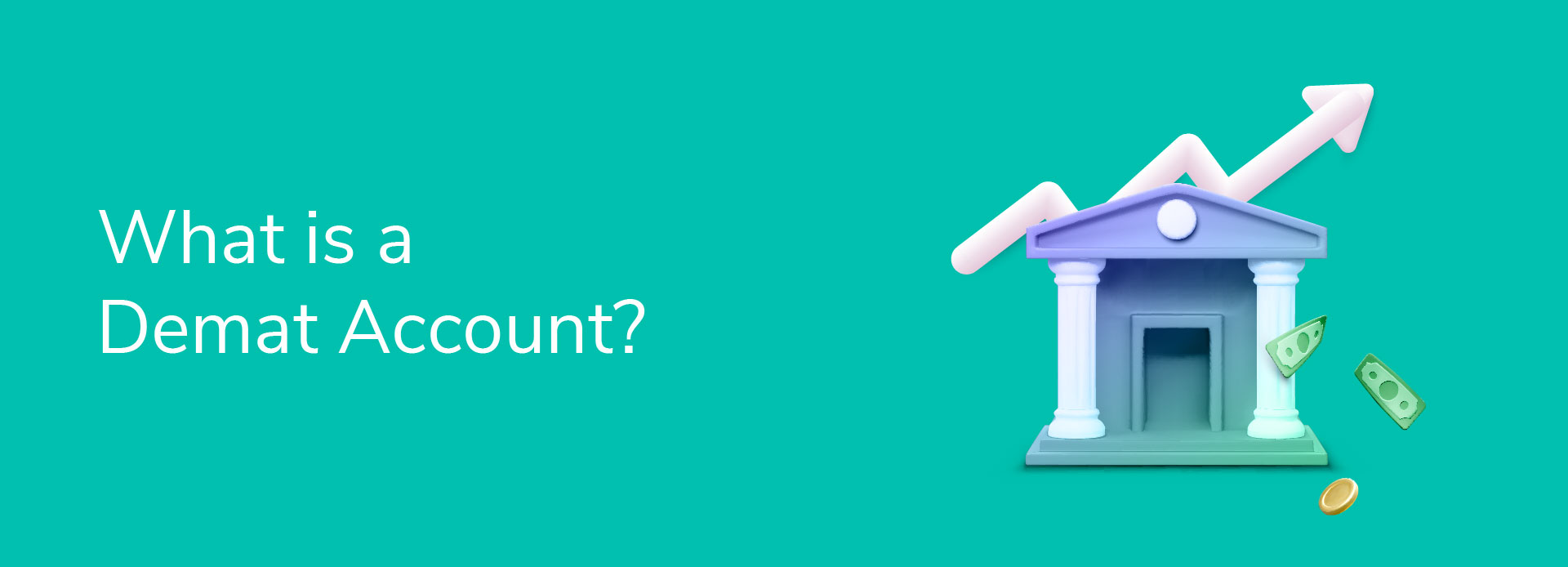
What is a Demat Account?
28 May 2024 | By INDIE
Over the last few years, there has been a remarkable surge in the number of individuals opting to open demat accounts. According to recent data, the number of demat accounts opened in Dec 2023 alone was 4.2 million. With the advent of technology, the process of buying, selling, and holding securities has evolved tremendously. Opening a demat account and joining stock brocking platforms offer an unparalleled level of convenience. Still, the concept of a demat account remains a mystery for many, though its significance for stock investments cannot be overstated. Let’s break it down.
More About Demat Account
At its core, a demat account serves as a digital repository for holding and managing securities in electronic form. Whether it's shares, bonds, mutual funds, or other financial instruments, the account records all transactions electronically. This eliminates the use of physical share certificates and simplifies buying, selling, and transferring securities.
What are the Demat Account Features?
1. Seamless Trading
Demat accounts facilitate seamless trading in the securities market. With just a few clicks, you can buy or sell shares, monitor market trends, and execute transactions in real-time. The electronic interface these accounts provide streamlines the entire trading process, making it efficient and convenient.
2. Quick Settlement
Unlike traditional share trading, which often involves lengthy settlement periods, transactions conducted through demat accounts settle much faster. With the advent of T+2 (trade date plus two days) settlement cycles, you can receive the proceeds of the trades within a shorter time frame, enhancing liquidity and capital efficiency.
3. Portfolio Management
Demat accounts also allow you to view your entire investment portfolio in one place, analyse performance metrics, and decide better based on real-time data. Now with stock broking options, decision-making has been simplified further. Some demat account providers may offer advanced features such as customised alerts, portfolio diversification tools, and performance analytics.
Recommended Read: How to Start Trading in Stock Market?
How Does a Demat Account Work?
This section covers the mechanics behind demat accounts, shedding light on how they operate and facilitate seamless transactions:
● Opening a demat account involves selecting a registered Depository Participant (DP) authorised by the depository (NSDL or CDSL). You need to complete the necessary paperwork to the DP, including providing identity, address, and PAN card proofs. Once verified, the DP assigns a unique Demat Account Number (DAN), granting access to the digital platform.
● Once you have activated your demat account, you can start depositing securities into the account. These securities will be held electronically in the dematerialized form.
● When you wish to buy or sell securities, you place an order through your demat account. The order is then routed to the stock exchange for execution. Upon successful execution, the securities will be debited from the seller's demat account and credited to the buyer's demat account. This process occurs electronically, ensuring swift and efficient settlement of transactions.
Types of Demat Accounts You Can Choose From
Understanding various types of demat accounts can help you select the option that best aligns with your investment objectives and trading preferences. These include:
1. Regular Demat Account
The regular demat account is the standard option offered by DPs to individual investors. It allows holding a wide range of securities, including equities, bonds, debentures, mutual funds, and exchange-traded funds (ETFs). Regular demat accounts are suitable for investors looking to build a diversified portfolio across different asset classes.
2. Repatriable and Non-Repatriable Demat Accounts
For NRIs looking to invest in the Indian securities market, there are two types of demat accounts available: repatriable and non-repatriable.
● Repatriable demat accounts allow NRIs to repatriate funds invested in India back to their home country, subject to certain regulations.
● Non-repatriable demat accounts, on the other hand, do not permit the repatriation of funds and are funded through non-repatriable income sources.
The world of stock trading is awaiting you – take the plunge and download the INDIE app today to begin your investment journey with this new digital investing app.
Disclaimer: The information provided in this article is generic and for informational purposes only. It is not a substitute for specific advice in your circumstances. Hence, you are advised to consult your financial advisor before making any financial decision. IndusInd Bank Limited (IBL) does not influence the views of the author in any way. IBL and the author shall not be responsible for any direct/indirect loss or liability incurred by the reader for making any financial decisions based on the contents and information.




